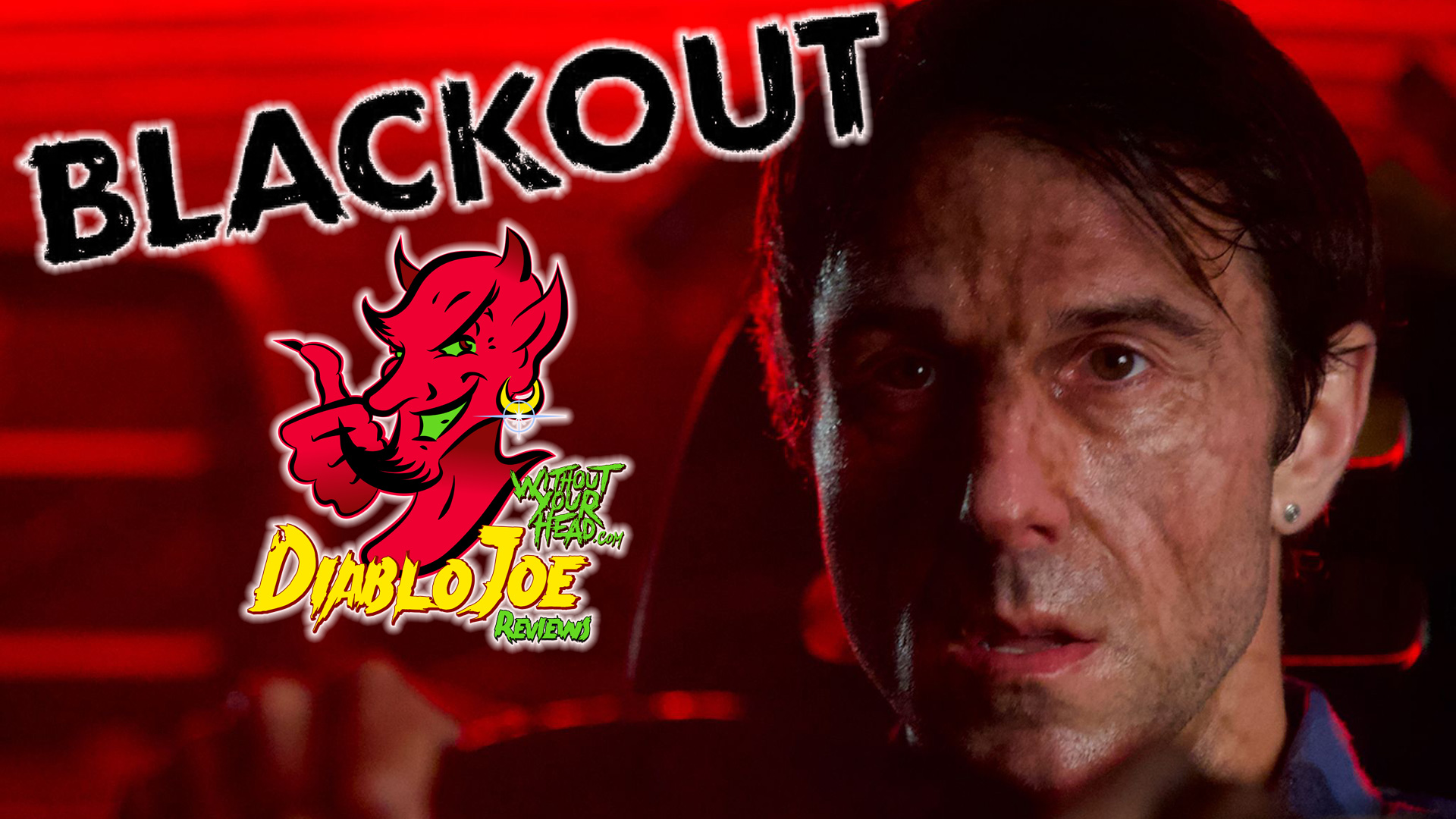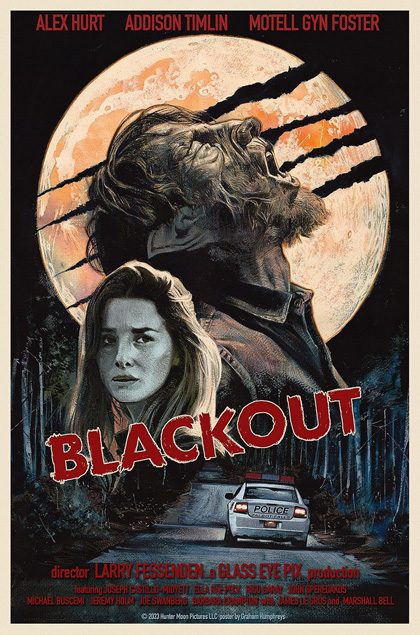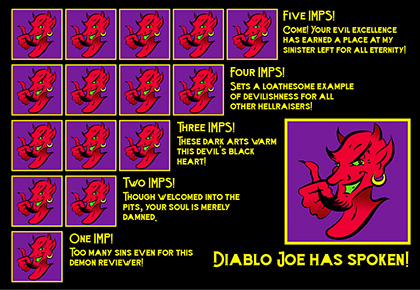

Thursday August 17, 2023 | Diablo Joe Reviews | Neal
"Blackout"
review by Diablo Joe
From Fantasia Film Festival 2023
Audio version
"Blackout"

Larry Fessenden is a bit of a demigod of indie horror. A multihyphenate, Fessenden has acted in, directed, or written some 120-plus feature films over the nearly four decades since his breakout film “Habit.” As a producer, through his company Glass Eye Pix, he has been instrumental in shepherding new and emerging talent. Fessenden is adored by his peers, well-liked in even mainstream Hollywood circles, and genre fans always perk up when his name is announced in association with any upcoming project. And as a lover of the Universal classics, it has been interesting to see his take on the icons of those films, such as his 2019 Frankenstein riff, “Depraved.”
All of this is much of why his wolfman tale, “Blackout,“ is such a supreme disappointment.
Basically, “Blackout” is the story of a painter who believes he has become a werewolf following a mysterious attack and wishes to end his reign of murderous terror in a small town. And had it retained that simple plot and theme while providing a few solid scares and horrors, it might have worked decently as a picture. But, unfortunately, “Blackout” is bogged down with a morass of subplots, too many characters, and long, talky scenes meant to add depth to its story that only drag its thin, unsatisfying tale on and on.
The culprit here is Fessenden’s script. Beyond the werewolf portion of his story, Fessenden has tried to interject a conflict between his lead character, Charley, and the land developer, Hammond, who once did business with his father. Charley is certain Hammond has some shady dealings in his past that he is determined to uncover. Plus, Hammond has accused a local Hispanic worker of being responsible for the savage murders of two young people in town. Oh, and he’s also the father of Charley’s love interest. But, as the film goes on, these subplots are never satisfyingly fleshed out.
Fessenden has filled “Blackout” with dozens of supporting players, many of whom are introduced only to be either wolfman fodder or die in some other freakish, unfortunate way. His script starts wonderfully with each, but we never get to know them beyond that initial glimmer of character development promise (the exception being a couple of para-military yokels who may be intended as comic relief but are instead embarrassingly out of place). Even more infuriating is that the script introduces many of them as intelligent and level-headed, only to have them ignore evidence right in front of their faces.
What is tragic about this is that the least developed character—or at least poorly so—is Charley. Traditionally, werewolves have been tragic creatures. Here’s a guy who believes he’s a wolfman and responsible for a series of brutal and grisly murders, including one that has resulted in the racist implication of a friend. Yet, his big concern is getting back at some local businessman who may or may not have an unsavory past. And when Charley gets proactive, he once again passes the responsibility onto someone else, resulting in yet another tragedy. For as much as everyone in town except Hammond seems to like Charley, the guy’s a self-centered jerk.
Alex Hurt tries admirably to give Charley some pathos. His father, William, excelled at giving selfish egocentrics charm and charisma. But Alex’s efforts still fall short. Fessenden’s extensive cast of performers similarly gives it their all, even for their often brief screen times. He’s got familiar faces, such as veteran baddie Marshall Bell as Hammond, Barbara Crampton, and James Le Gros, but as welcome as they are, many of their roles seem extraneous to the film’s basic wolfman theme.
The heavy reliance on “wolfman” over “werewolf” in this review is intentional. When Charley transforms, he is much more the classic Lon Chaney Jr. figure (after all, the town is called “Talbot Falls,” and its seal is a pentagram). We’re so used to a much more lupine silhouette to our werewolves that the old-school beast should be a breath of fresh air. But the clunky, Halloween-level makeup doesn’t do “Blackout’s” too-few horror scenes any favors.
Fessenden is not a bad filmmaker, but “Blackout” is a pretty bad film. Overlong, often dull, and meanderingly disjointed, Larry Fessenden has attempted to say something with his werewolf film, but his message is so muddled and off-base that “Blackout” adds little to the genre.
This devil of a reviewer gives “Blackout” 1.5 out of 5 imps.

